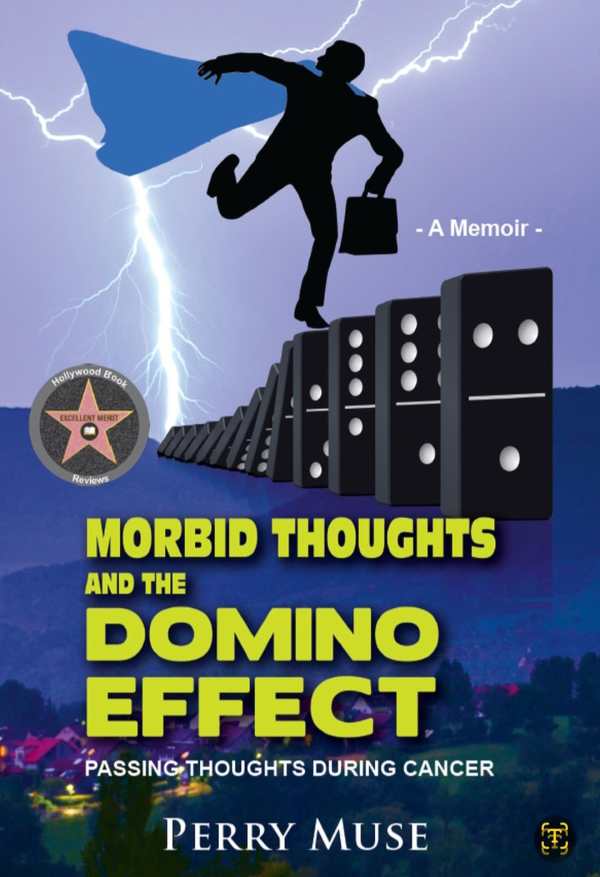Morbid Thoughts and The Domino Effect
Passing Thoughts During Cancer
Morbid Thoughts and the Domino Effect is the memoir of a jovial and optimistic cancer survivor; it is filled with humor and inspiration.
Perry Muse’s wry, heartfelt memoir Morbid Thoughts and the Domino Effect is about surviving cancer.
Muse was an adventurous man who had survived a number of accidents and challenges before he was diagnosed with prostate cancer at fifty-seven years of age. The cancer diagnosis shocked him and pushed him to find the inner resources to deal with the depression and anxiety that accompanied the potentially terminal illness. Indeed, throughout the book, Muse’s interior monologues are centered, following the ravages of the disease, the indignities and discomfort of treatment, and the avalanche of related disorders and health concerns that were triggered by his surgery and recovery. His narrative tone is forthright, and he is meticulous about describing both the procedures he endured and the fears and doubts that he contended with.
Tracking Muse’s progress through the world of cancer care and his work toward acceptance and well-being, this book handles its dual realities well: that cancer is a serious subject that leads to “morbid thoughts” and also that laughs are still possible in the midst of cancer treatments. Its pages include a tongue-in-cheek diagram of all Muse’s scars and considerations of outlets like astrology, through which Muse (a Sagittarius) discovered some truths about himself. Indeed, Muse’s astrological sign becomes the framework for the memoir, which unpacks different qualities of the sign, including optimism. Muse finds higher meaning in his ability to persevere through dramatic car accidents and mishaps, and his book pulls positive lessons from the turmoil of the 1960s too.
The book’s chapters are short and guided by empathetic observations about life and adversity; they reach for wide applicability. Many chapters end with song recommendations, too, encouraging the audience toward multimedia reflection on their themes. Photographs of the people, places, and medical devices described throughout further amplify this diverse book, which includes a glossary to explain some of the technical medical terms used throughout. Nonetheless, despite its multitude of storytelling tactics, the book becomes repetitive and ends up feeling too insular, as when it sorts through Muse’s likes and dislikes.
Sifting through memories of countless physical traumas in an upbeat manner, Morbid Thoughts and the Domino Effect is the memoir of an optimistic cancer survivor; it is filled with humor and inspiration.
Reviewed by
Matt Benzing
Disclosure: This article is not an endorsement, but a review. The publisher of this book provided free copies of the book and paid a small fee to have their book reviewed by a professional reviewer. Foreword Reviews and Clarion Reviews make no guarantee that the publisher will receive a positive review. Foreword Magazine, Inc. is disclosing this in accordance with the Federal Trade Commission’s 16 CFR, Part 255.

